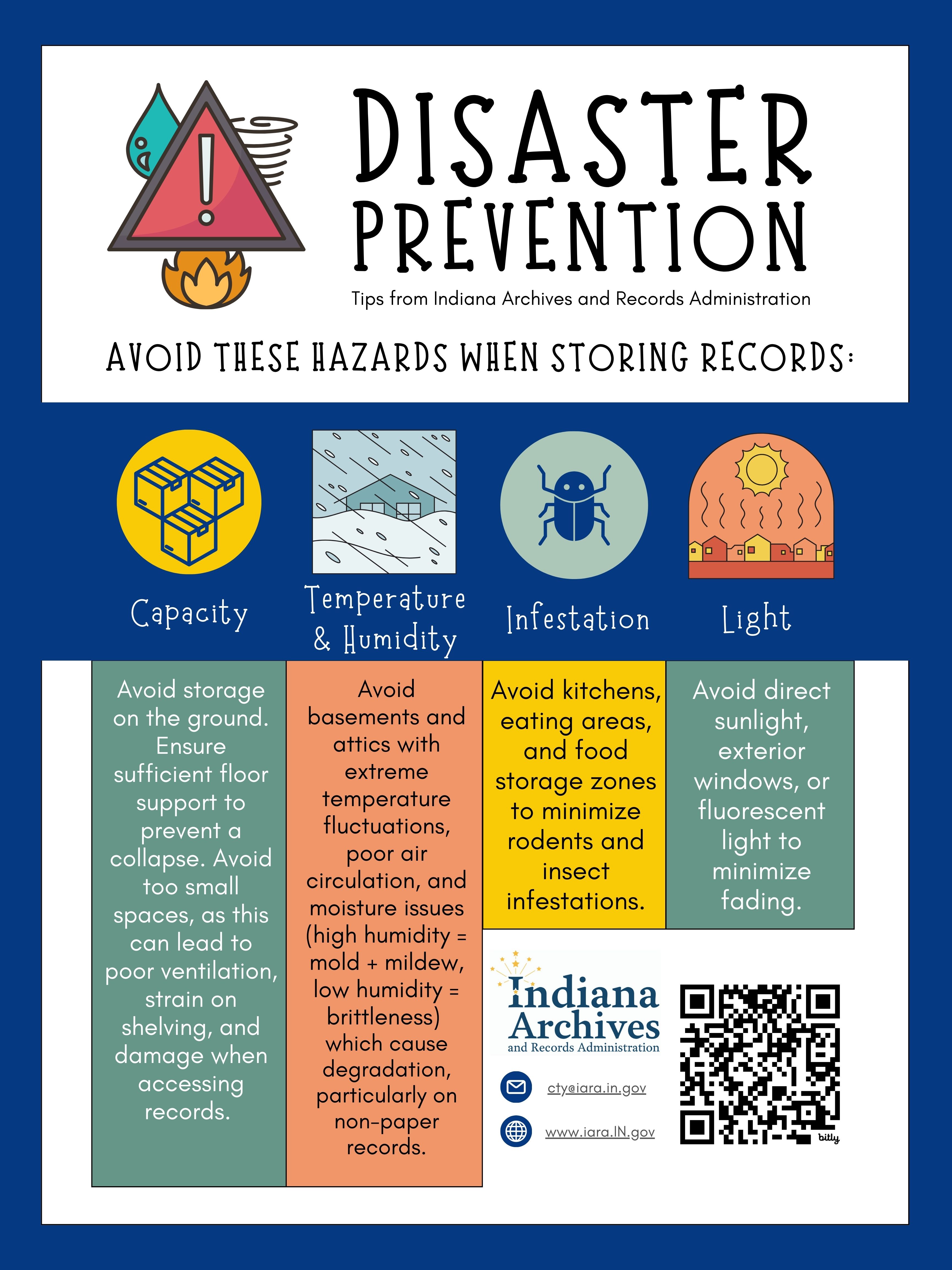
Post by IARA Records Management Liaison Amy Christiansen
Edited by IARA Records Analyst Madison Young
April 2025
Have you ever walked into a records storage room, and you knew something was wrong? You could smell the odor of an out-of-sight rodent infestation, then you turn a corner and see the chew marks and scratches on records boxes? Those vermin made bedding for their nests in the records! Or have you ever received that call from a maintenance person that the basement ceiling caved in from a busted water pipe and the records are now drenched? Or like what happened to a school recently, did you find out an office’s storage building was hit by a tornado and records went flying, literally everywhere?
I’m sure we have all heard about records disasters like this or even experienced them firsthand, whether to government records or our own personal records at home. But how does a county/local government employee handle these situations when they occur to public records? What do you do when disaster strikes? Let’s talk about it!
As a county/local government employee, you have legal responsibilities to public records. So, if disaster does strike, reach out to IARA’s Records & Information Management (RIM) team at cty@iara.in.gov immediately for help.
The RIM team will ask you for information, so answer the questions in as much detail as possible. Questions may include: what kind of damage there is; where are the records located; are those the only copy of the records you have; what record series are affected; are the records accessible or usable; do they contain confidential information?
If your records are truly unsalvageable due to the disaster, IARA will assist you in filling out the forms to get approval for destruction from your County Commission of Public Records.
If your records are salvageable, IARA can offer guidance on preservation and conservation resources.
Ultimately, there isn’t much you can do to prepare for the unknown natural disasters but there are some things you can do to prepare for other disasters striking your records:
- · check records storage rooms regularly
- · avoid light pollution
- · keep the temperature and humidity stable
- · be aware of any hazards in the room
- · limit access
- · keep the space clean without food, drink, dust, and dirt, and
- · know where your records are stored!
As always with records and information management issues at the county/local level, reach out for assistance to IARA’s RIM team at cty@iara.in.gov for help. And be prepared as much as you can for disaster striking your public records!
Download this handy Disaster Prevention sheet, print, and hang in the area you store records.

